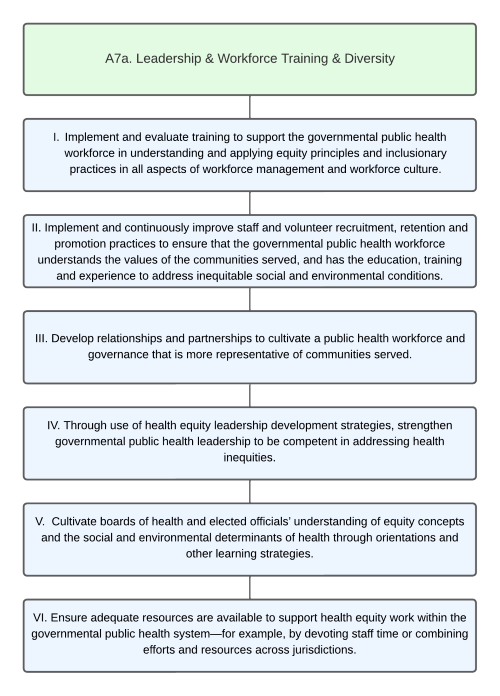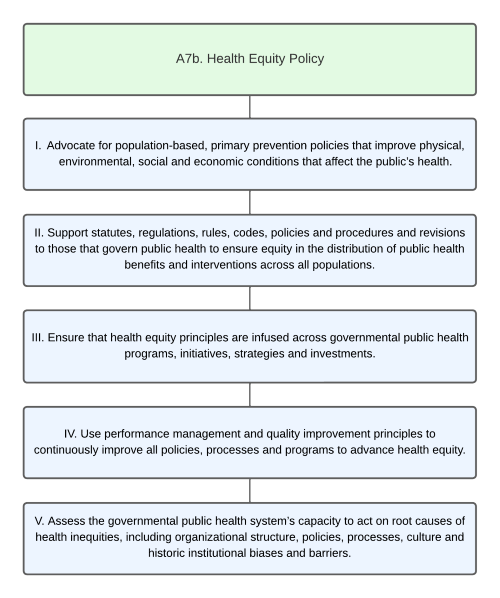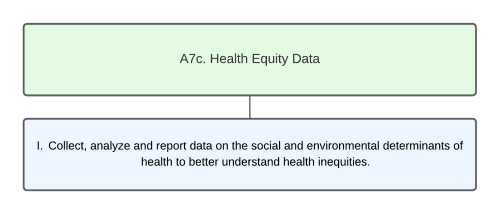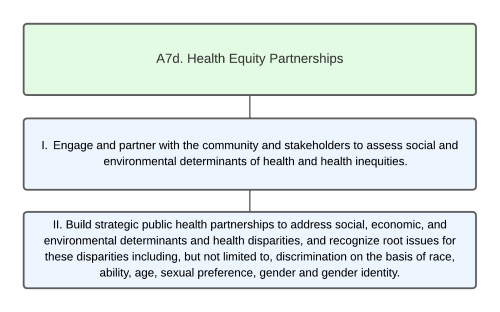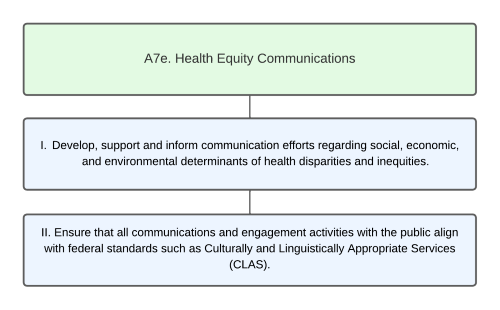A7. Health Equity and the Social Determinants of Health
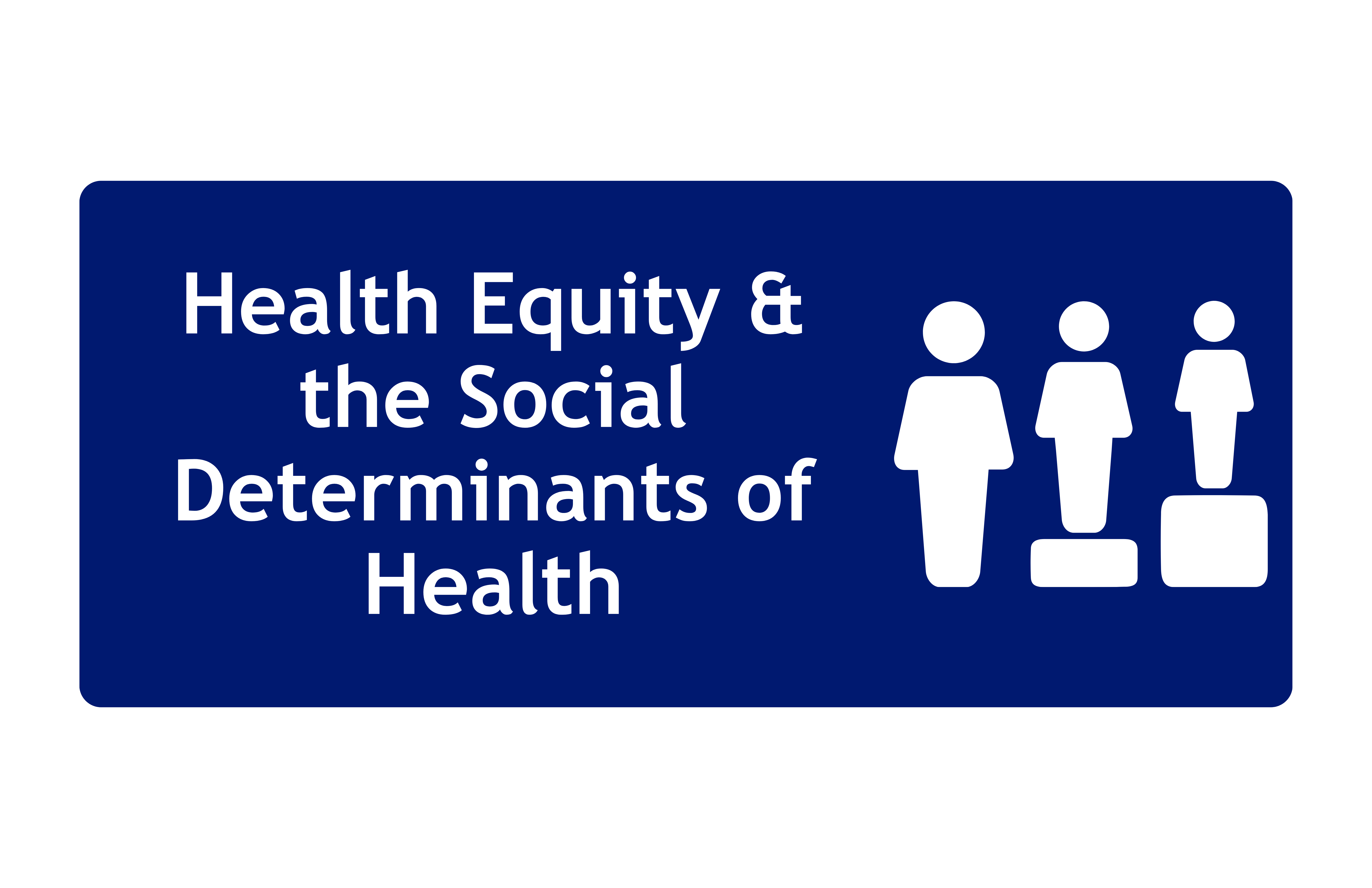
Health Equity and the Social Determinants of Health: Colorado’s governmental public health system will intentionally focus on improving systems and institutions that create or perpetuate socioeconomic disadvantage, social exclusion, racism, historical injustice, or other forms of oppression so that all people and communities in Colorado can achieve the highest level of health possible.
Governmental public health will have the requisite skills, competencies, and capacities to play an essential role in creating comprehensive strategies needed to address health inequities, and social and environmental determinants of health.
Links
The source Core Public Health Services Operational Definitions Manual 2019 is organized as follows:
|
Functions of Health Equity and SDoH
A7a. Leadership and Workforce Training and Diversity
I. Implement and evaluate training to support the governmental public health workforce in understanding and applying equity principles and inclusionary practices in all aspects of workforce management and workforce culture.
II. Implement and continuously improve staff and volunteer recruitment, retention and promotion practices to ensure that the governmental public health workforce understands the values of the communities served, and has the education, training and experience to address inequitable social and environmental conditions.
III. Develop relationships and partnerships to cultivate a public health workforce and governance that is more representative of communities served.
IV. Through use of health equity leadership development strategies, strengthen governmental public health leadership to be competent in addressing health inequities.
V. Cultivate boards of health and elected officials’ understanding of equity concepts and the social and environmental determinants of health through orientations and other learning strategies.
VI. Ensure adequate resources are available to support health equity work within the governmental public health system—for example, by devoting staff time or combining efforts and resources across jurisdictions.
A7b. Health Equity Policy
I. Advocate for population-based, primary prevention policies that improve physical, environmental, social and economic conditions that affect the public’s health.
II. Support statutes, regulations, rules, codes, policies and procedures and revisions to those that govern public health to ensure equity in the distribution of public health benefits and interventions across all populations.
III. Ensure that health equity principles are infused across governmental public health programs, initiatives, strategies and investments.
IV. Use performance management and quality improvement principles to continuously improve all policies, processes and programs to advance health equity.
V. Assess the governmental public health system’s capacity to act on root causes of health inequities, including organizational structure, policies, processes, culture and historic institutional biases and barriers.
A7c. Health Equity Data
I. Collect, analyze and report data on the social and environmental determinants of health to better understand health inequities.
A7d. Health Equity Partnerships
I. Engage and partner with the community and stakeholders to assess social and environmental determinants of health and health inequities.
II. Build strategic public health partnerships to address social, economic, and environmental determinants and health disparities, and recognize root issues for these disparities including, but not limited to, discrimination on the basis of race, ability, age, sexual preference, gender and gender identity.
A7e. Health Equity Communications
I. Develop, support and inform communication efforts regarding social, economic, and environmental determinants of health disparities and inequities.
II. Ensure that all communications and engagement activities with the public align with federal standards such as Culturally and Linguistically Appropriate Services (CLAS).
